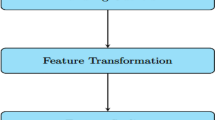Abstract
Construction claims are normally affected by a large number of complex and interrelated factors. It is highly desirable for the parties to a dispute to know with some certainty how the case would be resolved if it were taken to court. The use of artificial neural networks can be a cost-effective technique to help to predict the outcome of construction claims, on the basis of characteristics of cases and the corresponding past court decisions. In this paper, a particle swarm optimization model is adopted to train perceptrons. The approach is demonstrated to be feasible and effective by predicting the outcome of construction claims in Hong Kong in the last 10 years. The results show faster and more accurate results than its counterparts of a benching back-propagation neural network and that the PSO-based network are able to give a successful prediction rate of up to 80%. With this, the parties would be more prudent in pursuing litigation and hence the number of disputes could be reduced significantly.
Preview
Unable to display preview. Download preview PDF.
Similar content being viewed by others
References
Arditi, D., Oksay, F.E., Tokdemir, O.B.: Predicting the Outcome of Construction Litigation Using Neural Networks. Computer-Aided Civil and Infrastructure Engineering 13(2), 75–81 (1998)
Thirumalaiah, K., Deo, M.C.: River Stage Forecasting Using Artificial Neural Networks. Journal of Hydrologic Engineering, ASCE 3(1), 26–32 (1998)
Govindaraju, R., Rao, A. (eds.): Artificial Neural Networks in Hydrology. Kluwer Academic Publishers, Dordrecht (2000)
Liong, S.Y., Lim, W.H., Paudyal, G.N.: River Stage Forecasting in Bangladesh: Neural Network Approach. Journal of Computing in Civil Engineering, ASCE 14(1), 1–8 (2000)
Chau, K.W., Cheng, C.T.: Real-time prediction of water stage with artificial neural network approach. In: McKay, B., Slaney, J.K. (eds.) Canadian AI 2002. LNCS (LNAI), vol. 2557, p. 715. Springer, Heidelberg (2002)
Kennedy, J., Eberhart, R.: Particle Swarm Optimization. In: Proceedings of the 1995 IEEE International Conference on Neural Networks. Perth, pp. 1942–1948 (1995)
Kennedy, J.: The Particle Swarm: Social Adaptation of Knowledge. In: Proceedings of the 1997 International Conference on Evolutionary Computation, Indianapolis, pp. 303–308 (1997)
Clerc, M., Kennedy, J.: The Particle Swarm—Explosion, Stability, and Convergence in a Multidimensional Complex Space. IEEE Transactions on Evolutionary Computation 6(1), 58–73 (2002)
Kennedy, J., Eberhart, R., Shi, Y.: Swarm Intelligence. Morgan Kaufmann Publishers, San Francisco (2001)
Chau, K.W.: River stage forecasting with particle swarm optimization. In: Orchard, B., Yang, C., Ali, M. (eds.) IEA/AIE 2004. LNCS, vol. 3029, pp. 1166–1173. Springer, Heidelberg (2004)
Chau, K.W.: Rainfall-Runoff Correlation with Particle Swarm Optimization Algorithm. In: Yin, F.-L., Wang, J., Guo, C. (eds.) ISNN 2004. LNCS, vol. 3174, pp. 970–975. Springer, Heidelberg (2004)
Chau, K.W.: Resolving Construction Disputes by Mediation: Hong Kong Experience. Journal of Management in Engineering, ASCE 8(4), 384–393 (1992)
Author information
Authors and Affiliations
Editor information
Editors and Affiliations
Rights and permissions
Copyright information
© 2005 Springer-Verlag Berlin Heidelberg
About this paper
Cite this paper
Chau, K. (2005). Predicting Construction Litigation Outcome Using Particle Swarm Optimization. In: Ali, M., Esposito, F. (eds) Innovations in Applied Artificial Intelligence. IEA/AIE 2005. Lecture Notes in Computer Science(), vol 3533. Springer, Berlin, Heidelberg. https://doi.org/10.1007/11504894_80
Download citation
DOI: https://doi.org/10.1007/11504894_80
Publisher Name: Springer, Berlin, Heidelberg
Print ISBN: 978-3-540-26551-1
Online ISBN: 978-3-540-31893-4
eBook Packages: Computer ScienceComputer Science (R0)
Publish with us
We’re sorry, something doesn't seem to be working properly.
Please try refreshing the page. If that doesn't work, please contact support so we can address the problem.




